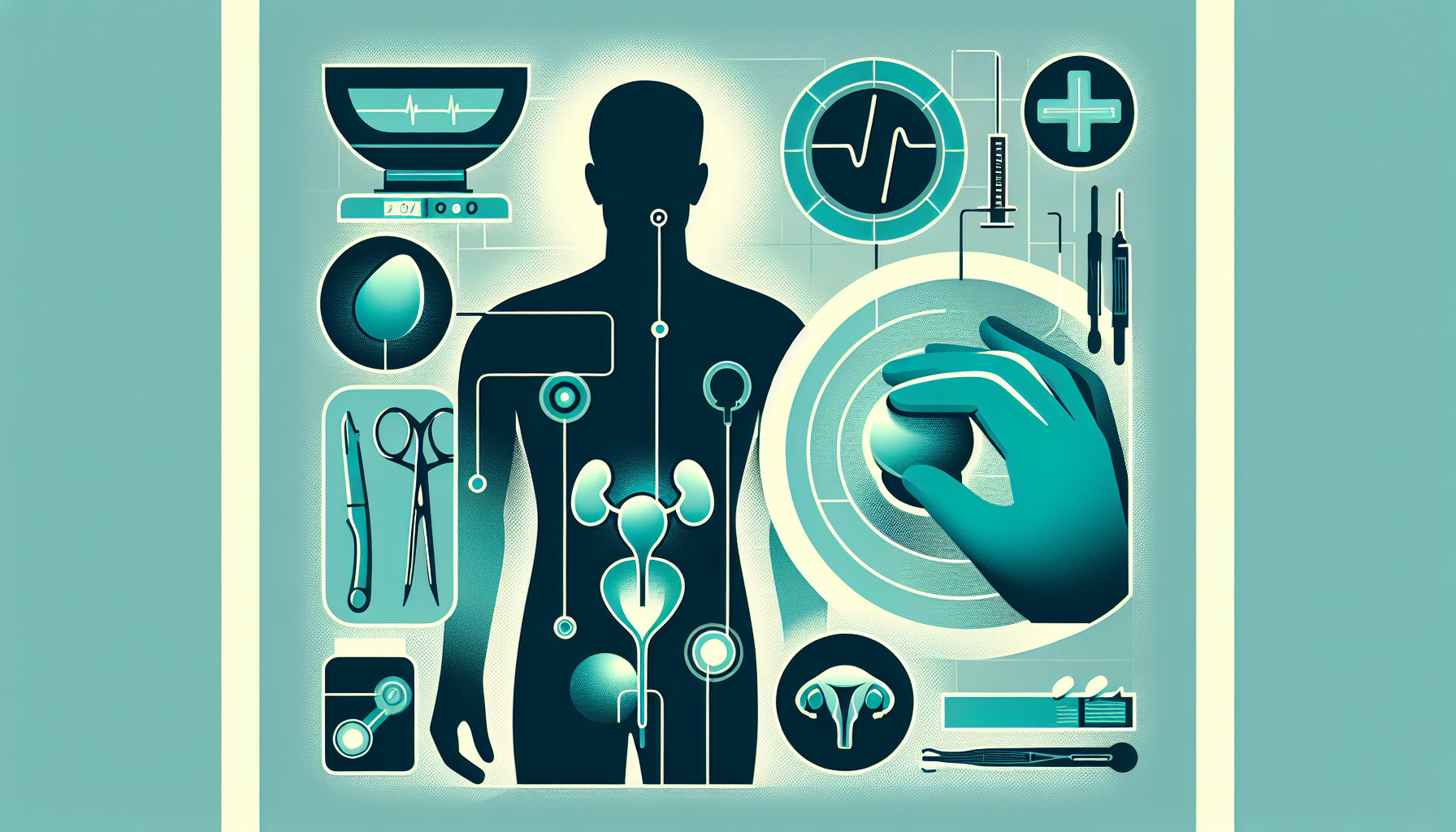Our Summary
This research paper focuses on the relationship between urine bacterial cultures and prostate biopsy infections. Sometimes, prostate biopsies can result in infections, which can be serious and even fatal. There’s been debate in the medical community about whether bacteria present in urine before a biopsy can predict or contribute to these infections. The French Association of Urology’s Infectiology Committee conducted a review of existing scientific literature to try and clear up the issue. They found that there’s not much research available on the subject, but the evidence that does exist does not show a clear link between pre-biopsy bacteria in urine and post-biopsy infections. As a result, the committee does not recommend routinely testing urine for bacteria before prostate biopsies, unless there are other signs that the patient might have a urinary tract infection. In those cases, it might be better to delay the biopsy.
FAQs
- What is the relationship between urine bacteria and prostate biopsy infections?
- Why does the French Association of Urology’s Infectiology Committee not recommend routine testing of urine for bacteria before prostate biopsies?
- When might it be recommended to delay a prostate biopsy due to bacteria in the urine?
Doctor’s Tip
One helpful tip that a doctor might tell a patient about prostate biopsy is to make sure to follow all pre-biopsy instructions provided by the healthcare team. This may include avoiding certain medications, such as blood thinners, before the procedure, as well as following any dietary restrictions. It’s also important to let the doctor know about any medications or supplements being taken, as they may need to be adjusted before the biopsy. Finally, it’s important to discuss any concerns or questions with the healthcare team before the procedure to ensure that the patient is well-informed and prepared.
Suitable For
Patients who are typically recommended for a prostate biopsy include those with high levels of prostate-specific antigen (PSA) in their blood, abnormal digital rectal exams (DRE), or those with a family history of prostate cancer. Additionally, patients who have had a previous negative biopsy but are still experiencing symptoms or have a rising PSA level may also be recommended for a repeat biopsy. Other factors that may lead to a recommendation for a prostate biopsy include age, race, and overall health status. Ultimately, the decision to undergo a prostate biopsy should be made in consultation with a healthcare provider based on individual risk factors and symptoms.
Timeline
Before prostate biopsy:
- Consultation with a urologist to discuss the need for a biopsy and potential risks
- Patient may undergo blood tests and imaging studies to assess the prostate
- Patient may be instructed to stop taking certain medications, such as blood thinners, before the biopsy
- Patient may receive antibiotics to prevent infection during the procedure
During prostate biopsy:
- Patient is positioned on their side or back
- Local anesthesia is administered to numb the area
- A biopsy needle is inserted through the rectum or perineum to collect tissue samples from the prostate
- Patient may feel discomfort or pressure during the procedure
After prostate biopsy:
- Patient may experience some pain, blood in urine or semen, and difficulty urinating for a few days
- Patient may be prescribed antibiotics to prevent infection
- Results of the biopsy are typically available within a week
- Follow-up appointment with the urologist to discuss the biopsy results and potential treatment options
What to Ask Your Doctor
Some questions a patient should ask their doctor about prostate biopsy include:
- What are the potential risks and complications associated with a prostate biopsy?
- How will the biopsy be performed and what can I expect during and after the procedure?
- How accurate are the results of a prostate biopsy in detecting prostate cancer?
- What are the alternatives to a prostate biopsy and why is a biopsy recommended in my case?
- How should I prepare for the biopsy, including any necessary medications or dietary restrictions?
- What is the likelihood of developing an infection after the biopsy and what steps will be taken to prevent this?
- How soon will I receive the results of the biopsy and what will be the next steps depending on the results?
- Are there any specific symptoms or signs I should watch for after the biopsy that might indicate a complication or infection?
- Will I need to follow up with you or another healthcare provider after the biopsy and if so, how often?
- Are there any additional tests or procedures that may be recommended based on the results of the biopsy?
Reference
Authors: Bruyere F, Vallee M, Legeais D, Le Goux C, Malavaud S, Zahar JR, Bey E, Sotto A. Journal: Prog Urol. 2021 Apr;31(5):245-248. doi: 10.1016/j.purol.2020.10.003. Epub 2020 Nov 5. PMID: 33160851
